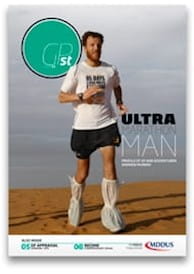GP APPRAISAL has been a statutory requirement for all general practitioners since April 2002. Since then, revalidation has been just over the horizon, tantalising us all. The primary aim of the GP appraisal scheme has been to help doctors reflect on all aspects of their practice, identify their personal educational and development needs and formulate a plan around how these will be achieved. It is believed that appraisal will form the bulk of supporting information, formerly known as “evidence”, which will satisfy the requirements of revalidation.
Revalidation is the process by which all licensed doctors must demonstrate every five years that they are up to date and fit to practise. At the moment, the planned start date for revalidation is January 2013, and in March 2011, the GMC published two documents which indicate what will be required. Both are available on the GMC website and make an interesting read: Good Medical Practice; Framework for appraisal and revalidation and Supporting information for appraisal and revalidation.
The role of an appraiser is not to judge you, but to guide you in providing supporting information and in preparing for revalidation. Your appraiser will be interested in what you did with the information and your reflections on that information, not simply that you collected it and maintained it in a portfolio. Your appraiser will want to know what you think the supporting information says about your practice and how you intend to develop or modify your practice as a result of that reflection. For example, how you responded to a significant event and any changes to your work as a result.
There are six types of supporting information that you will be expected to provide and discuss at your appraisal, some of them at least once in each five year cycle. They are:
1. Continuing professional development.
2. Quality improvement activity – for example audit.
3. Significant events – likely two per year.
4. Feedback from colleagues – one multisource feedback (MSF or 360 degree feedback) in the first three years.
5. Feedback from patients – one patient survey within the first three years.
6. Review of complaints and compliments.
For the moment, it is important to recognise that the tools for MSF and patient feedback are still being developed and pilots are ongoing but they are not yet compulsory. However, many GPs are bringing this type of evidence to their appraisal now in preparation for revalidation and also because they wish to use these tools for their professional development. For example, the NES Partnership (educational resource for general practice CPD in the West of Scotland), based at Central Quay in Glasgow is offering places on the MSF pilot.
Most GPs remain engaged with the process which, like going to the dentist or completing your tax return, is never as bad as you think. If you wish to satisfy the needs of revalidation and get the most out of your appraisal, I would suggest you consider the following:
- Plan ahead. Contact your host board/PCT to join the performers’ list three to four months before you finish your training.
- If you are going overseas after your vocational training, get some advice about how this may affect your appraisal and revalidation prospects. There should be a local appraisal adviser/lead GP appraiser in every health board/PCT.
- Keep a log book or portfolio of all your learning needs and learning activities and try to keep notes of learning outcomes or impact/benefit to patients. This allows you to demonstrate that you are continuing to meet the attributes set out in the GMC framework above.
- Think about the RCGP CPD credits system, which is simply a mechanism of documenting your supporting information, allowing you to consider your educational activities in terms of relevance to your role(s), the variation in different activities and their impact. See the guide on the RCGP website.
- Don’t think that you are prohibited from undertaking activities such as significant event analysis, patient surveys, MSF and audit – they are all possible. Seek advice from your appraiser or associate adviser as all of these activities will play a part in your supporting information over the revalidation five year period.
- Work with your colleagues. Keep examples of agendas and minutes of meetings you’ve attended. In Scotland, consider joining Practice Based Small Group Learning (PBSGL) or Young Principal Groups.
- Consider resources and use them. This includes: NES, health boards, PCTs, RCGP, appraisers, local appraisal advisers, and associate advisers. The Scottish appraisal (SOAR) and NHS Appraisal for Doctors Group websites have information to support CPD, appraisal and revalidation, including the appraisal toolkit for both Scotland and England.
- If in doubt, contact your appraiser for advice. You should be allocated an appraiser within a few months of joining the performers’ list. In summary, appraisal should be a nonthreatening process and is confidential unless the appraiser has concerns about patient safety in line with GMC guidance. I’m sure you will find it stimulating and informative.
Links
Scottish Online Appraisal Resource (SOAR) www.scottishappraisal.scot.nhs.uk
NHS Appraisal for Doctors Group www.appraisalsupport.nhs.uk
NES Partnership
PRACTICE BASED SMALL GROUP LEARNING www.tinyurl.com/44lkak4
Janice Oliver is an appraisal adviser for the Greater Glasgow and Clyde area
This page was correct at the time of publication. Any guidance is intended as general guidance for members only. If you are a member and need specific advice relating to your own circumstances, please contact one of our advisers.
Read more from this issue of Insight Primary

Save this article
Save this article to a list of favourite articles which members can access in their account.
Save to library


